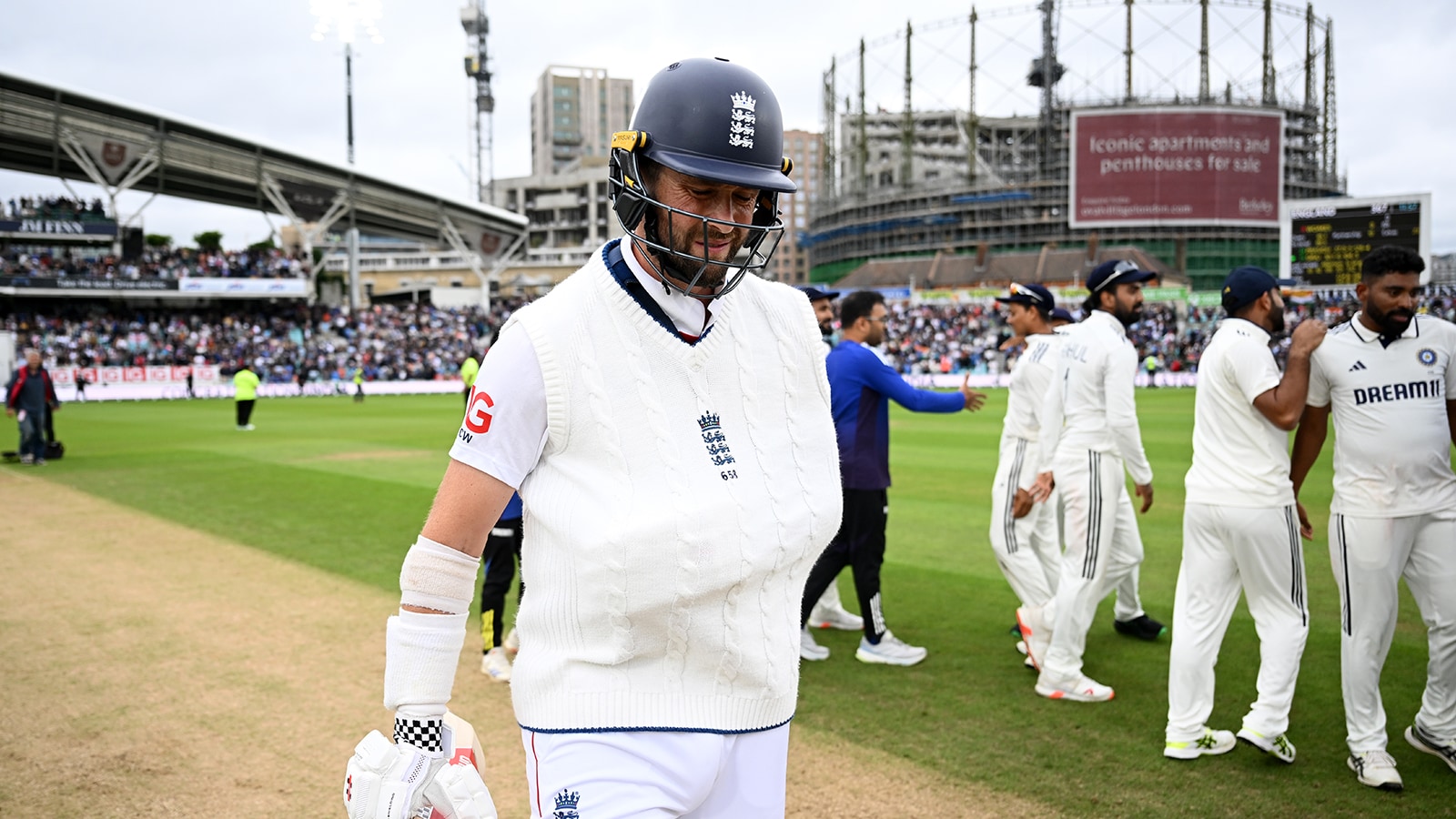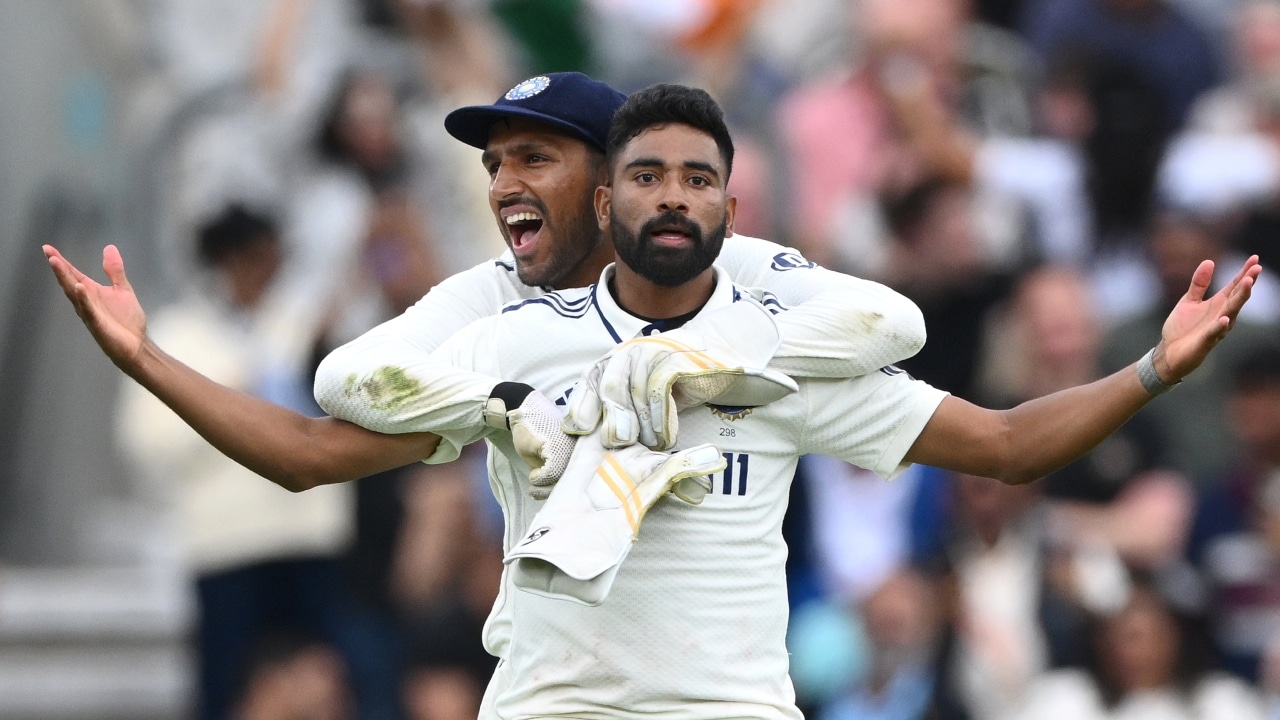A poetic account of India’s epic six-run win over England in a classic Test finale at The Oval that redefined modern cricket.
The tension inside the Oval press box was palpable, though everyone tried hard to hide it. Faces calm, fingers still, but hearts pounding. I had the privilege of being at the centre of it all, surrounded by seasoned cricket scribes from both England and India, many of whom admitted, quietly, that they had never seen anything like this.
It took just 56 minutes for this epic Test to find a result in the final session, with England falling from hope to heartbreak and India rising from doubt to glory.
An immortal end to a riveting 25 days of Test cricket, played across five iconic venues. And now, under grey skies on a cool South London morning, came the defining moment for India, for this young team, and for the long form of the game itself.
When 35 Runs Became a Mountain
England began the fifth day needing only 35 runs, with four wickets in hand. A series win appeared within reach. Harry Brook’s brilliance and Joe Root’s composure had brought them tantalisingly close. But Test cricket is not a game of certainties.
What followed was less a collapse and more a cataclysm.
Mohammed Siraj, possessed with rhythm and resolve, ripped through the lower order in a spell that turned inevitability into disbelief. Jamie Overton, Jamie Smith, Josh Tongue, Gus Atkinson – gone in a blink. From 339 for 5, England crumbled to 367 all out.
India’s fielders stalked the pitch. Every ball landed like thunder. Every run was earned through fire. What was once a quiet morning turned the Oval into a coliseum of pressure.

Woakes Walks One-Armed, Spirit Soars
Then came a moment that silenced even the partisan crowd.
Chris Woakes, his shoulder dislocated and his arm strapped in a sling, emerged to bat at No. 11. He would not face a single delivery. He didn’t need to. His presence alone, battered and unbowed, captured the soul of the sport.
Gus Atkinson, holding on alongside him, could not keep out the inevitable. Siraj steamed in one final time. A full, fast, unanswerable yorker shattered the stumps.
India had won by six runs. A margin vanishingly small. A memory impossibly large.
The Roar That Followed
The Oval erupted. Not in anger. Not in sorrow. But in awe.
Indian fans exploded in unfiltered joy. Flags waved, tears flowed, voices cracked. But equally moving was the response from English supporters. They rose, clapped, nodded. A standing ovation for something greater than rivalry, a moment of sporting purity.
This wasn’t just a victory. It was a vindication.

A Series for the Soul
Led by Shubman Gill, India’s 26-year-old captain, this young team silenced doubts and seized destiny. Gill’s calm authority and staggering 754 runs in the series marked him as a leader born not just of talent, but of timing.
The five-Test series unfolded across hallowed venues:, Headingley, Edgbaston, Old Trafford, Lord’s, and finally The Oval. Each ground offered a different chapter. Each Test swung like a pendulum. It was cricket in its purest form, tense, tactical, deeply human.
The final result was 2–2. As the visiting team, India retained the Anderson–Tendulkar Trophy. But the final score mattered less than the journey.
Because this series gave something far rarer than a win.
It gave us belief.
The Final Word
As the press box emptied and laptops snapped shut, there were no glib summaries or instant takes. Just silence. And wonder.
How do you reduce 56 minutes of drama, courage, collapse, and triumph into a few neat lines?
You don’t.
You point to The Oval. To that final morning. And you whisper to the doubters, the distracted, the digital-age skeptics:
This is why we watch.
Test cricket didn’t just survive that day in South London. It rose, unforgettable and eternal.
And we were lucky enough to witness it.
